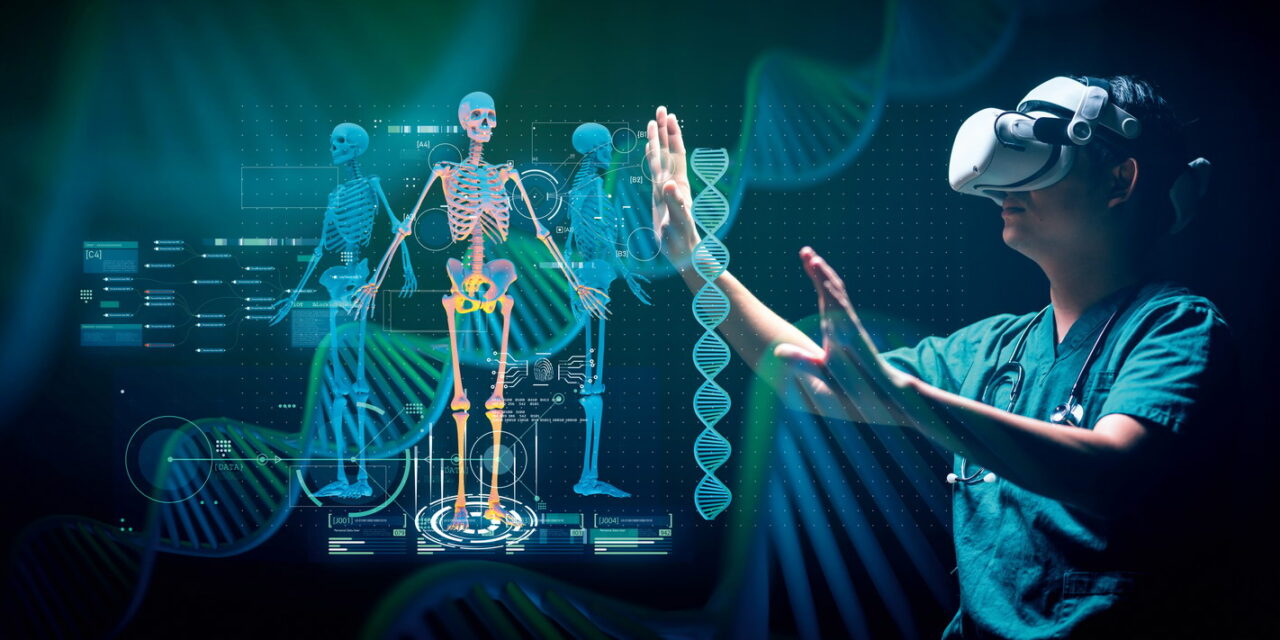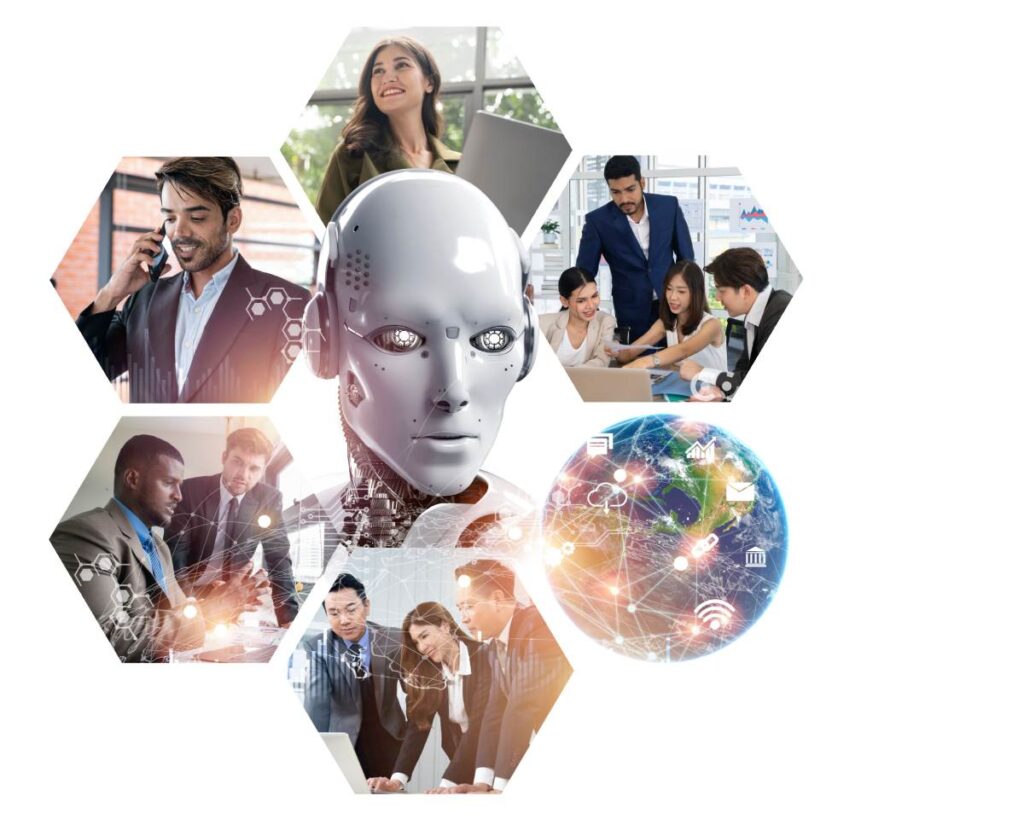In recent years, the integration of artificial intelligence (AI) into the healthcare sector has emerged as a transformative force, fundamentally changing how diagnoses and treatments are approached. From predictive analytics to personalized medicine, AI is revolutionizing healthcare diagnoses and treatments by enabling faster, more accurate decision-making processes. This technological advancement not only enhances the efficiency of healthcare providers but also significantly improves patient outcomes, making it a pivotal topic in modern medicine.
As we delve deeper into this article, you will discover the various ways AI is being utilized in healthcare, including its role in early disease detection, treatment planning, and patient monitoring. We will explore real-world applications of AI technologies, such as machine learning algorithms that analyze medical images and natural language processing tools that assist in clinical documentation. By understanding these innovations, you will gain insight into how AI is shaping the future of healthcare and the potential it holds for improving the quality of care.
Furthermore, we will discuss the challenges and ethical considerations that accompany the adoption of AI in healthcare. As we navigate through these complexities, you will learn about the importance of balancing technological advancements with patient privacy and safety. Join us on this enlightening journey to uncover how AI is not just a trend but a revolutionary force that is redefining healthcare as we know it.
Artificial Intelligence (AI) is transforming the healthcare landscape by enhancing diagnostic accuracy and personalizing treatment plans. This article explores various aspects of how AI is revolutionizing healthcare, focusing on key areas that are gaining traction in the medical community.
Enhanced Diagnostic Accuracy
AI algorithms are increasingly being used to analyze medical images, such as X-rays, MRIs, and CT scans. These algorithms can detect anomalies that may be missed by the human eye, leading to earlier and more accurate diagnoses. For instance, AI systems trained on vast datasets can identify patterns associated with diseases like cancer, significantly improving the chances of early detection.
Moreover, AI can assist in diagnosing conditions by analyzing patient data, including symptoms, medical history, and genetic information. This comprehensive approach allows healthcare providers to make informed decisions, reducing the likelihood of misdiagnosis and ensuring that patients receive the appropriate care promptly.
Personalized Treatment Plans
AI is enabling the development of personalized treatment plans tailored to individual patients. By analyzing genetic information and treatment responses, AI can predict how a patient will respond to specific therapies. This precision medicine approach ensures that patients receive the most effective treatments based on their unique biological makeup.
Additionally, AI can continuously monitor patient data and adjust treatment plans in real-time. This dynamic approach allows for timely interventions, improving patient outcomes and minimizing adverse effects associated with traditional one-size-fits-all treatments.
Predictive Analytics in Patient Care
Predictive analytics powered by AI is revolutionizing patient care by forecasting potential health issues before they arise. By analyzing historical data and identifying risk factors, AI can alert healthcare providers to patients who may be at risk for conditions such as heart disease or diabetes.
This proactive approach enables early intervention, which can significantly reduce hospitalizations and improve overall health outcomes. For example, AI algorithms can analyze lifestyle factors and recommend preventive measures, empowering patients to take charge of their health.
Streamlining Administrative Processes
AI is not only transforming clinical practices but also streamlining administrative processes within healthcare organizations. By automating tasks such as appointment scheduling, billing, and patient record management, AI reduces the administrative burden on healthcare professionals.
This efficiency allows healthcare providers to focus more on patient care rather than paperwork, ultimately enhancing the patient experience. Furthermore, AI-driven chatbots can assist patients with inquiries, providing immediate responses and freeing up staff for more complex tasks.
Drug Discovery and Development
The drug discovery process is notoriously lengthy and expensive. However, AI is accelerating this process by analyzing vast datasets to identify potential drug candidates and predict their effectiveness. Machine learning algorithms can sift through chemical compounds and biological data, significantly reducing the time required for research and development.
Moreover, AI can optimize clinical trial designs by identifying suitable patient populations and predicting outcomes. This not only speeds up the development of new therapies but also enhances the likelihood of successful trials, ultimately bringing innovative treatments to market faster.
Remote Patient Monitoring
AI technologies are facilitating remote patient monitoring, allowing healthcare providers to track patients’ health from the comfort of their homes. Wearable devices equipped with AI can collect real-time data on vital signs, activity levels, and other health metrics.
This continuous monitoring enables healthcare providers to detect changes in a patient’s condition promptly, leading to timely interventions. Additionally, remote monitoring reduces the need for frequent hospital visits, making healthcare more accessible and convenient for patients.
AI in Mental Health Care
AI is making significant strides in mental health care by providing tools for diagnosis and treatment. Chatbots and virtual therapists can offer support to individuals experiencing mental health issues, providing immediate assistance and resources.
Furthermore, AI can analyze speech patterns and social media activity to identify signs of mental health disorders. This innovative approach allows for early intervention and personalized treatment plans, addressing mental health concerns more effectively.
Ethical Considerations and Challenges
While AI holds immense potential in healthcare, it also raises ethical considerations and challenges. Issues such as data privacy, algorithmic bias, and the need for transparency in AI decision-making processes must be addressed to ensure that AI technologies are used responsibly.
Healthcare organizations must establish guidelines and regulations to govern the use of AI, ensuring that patient safety and ethical standards are upheld. Engaging stakeholders, including patients, healthcare providers, and policymakers, is crucial in navigating these challenges and maximizing the benefits of AI in healthcare.
| Aspect | Description |
|---|---|
| Improved Diagnostics | AI algorithms analyze medical images and data to identify diseases with high accuracy, often surpassing human capabilities. |
| Personalized Treatment Plans | AI systems can process vast amounts of patient data to recommend tailored treatment plans based on individual health profiles. |
| Predictive Analytics | AI tools predict disease outbreaks and patient deterioration by analyzing trends and patterns in health data. |
| Drug Discovery | AI accelerates the drug discovery process by simulating how different compounds interact with targets, reducing time and costs. |
| Robotic Surgery | AI-powered robotic systems assist surgeons in performing complex procedures with precision, leading to better outcomes. |
| Virtual Health Assistants | AI chatbots and virtual assistants provide patients with 24/7 support, answering questions and managing appointments. |
| Remote Monitoring | Wearable devices equipped with AI monitor patients’ vital signs in real-time, alerting healthcare providers to potential issues. |
| Data Management | AI helps in managing and analyzing large datasets, improving the efficiency of healthcare operations and decision-making. |



